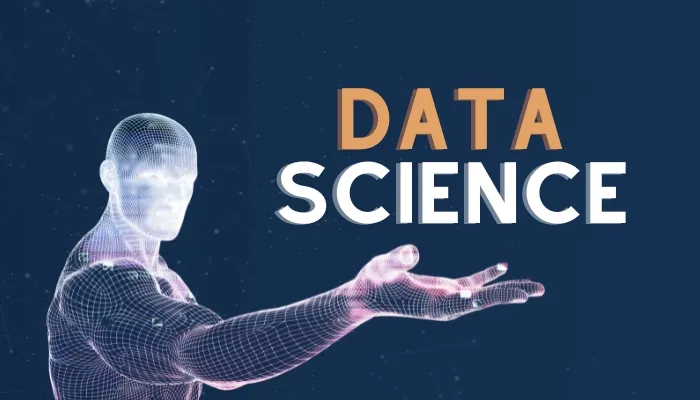Our online data science course is designed to equip you with the essential skills needed to excel in the field of data analysis. You'll learn programming languages like Python, work with databases, and understand key concepts such as machine learning, statistics, and data visualization.
The course offers hands-on projects, real-world case studies, and interactive lessons to enhance your practical knowledge. Whether you're a beginner or looking to upskill, our course is tailored to meet your needs.
Gain industry-relevant expertise and start your journey toward becoming a successful data scientist, all from the comfort of your home.
Introduction to Data Science in Python
What is Data Science?
Tools for Data Science
Hands-On Learning: Work on real-world projects to gain practical knowledge.
Beginner-Friendly: Start with the basics and move to advanced topics step by step.
Flexible Schedule: Study at your own pace with online or offline options.
Updated Curriculum: Learn the latest tools like Python, Tableau, and TensorFlow.
Career Support: Get guidance on resumes, interviews, and job placements.
Globally Recognized Certificate: Boost your career with a certification.
Gain hands-on experience with the key programming languages and tools commonly used in data science courses.
Optional modules offer the chance to deepen your expertise in specific areas of interest.
Need to know more?
Download the course brochure to explore the full details of our Data Science course.
A postgraduate degree in data science equips you with advanced skills and expertise, opening doors to high-paying and impactful careers in India and abroad.
Top Career Roles in Data Science
Analyze data using AI, machine learning, and advanced analytics to deliver actionable insights.
Average Salary: ₹8–19 LPA
Develop machine learning models to solve real-world problems.
Average Salary: ₹6–18 LPA
Build AI systems and innovate with deep learning technologies.
Average Salary: ₹7–23.3 LPA
Manage massive datasets and design scalable data systems.
Average Salary: ₹5–14.1 LPA
Provide businesses with strategic insights based on data.
Average Salary: ₹15–23 LPA
Lead data-driven decision-making through advanced tools.
Average Salary: ₹14–27.5 LPA
Use data science in financial modeling for investments.
Average Salary: ₹12–25 LPA
| Experience Level | India (INR/year) | Abroad ($/year) |
|---|---|---|
| Entry Level | ₹5,95,255 | $86,906 |
| Early Career | ₹9,70,313 | $99,755 |
| Mid-Career | ₹16,45,917 | $115,961 |
| Experienced | ₹21,77,131 | $126,786 |
| Late Career | ₹1,000,000 | $137,604 |
Data Science opens global opportunities with excellent salary prospects. The specific role and earnings depend on location, sector, and expertise.
Data science professionals are in demand across numerous industries due to their ability to extract insights from data and drive growth. Here are some industries that hire online Data Science Master’s graduates:
Technology: Leading companies like Adobe, Oracle, SAP, and Salesforce actively seek data scientists to build innovative products and solutions.
Finance: Banks such as HDFC, ICICI, JPMorgan, and Goldman Sachs, as well as fintech companies like PayPal and Square, rely on data science to enhance decision-making and improve services.
Healthcare: Organizations like Apollo Hospitals, Siemens Healthineers, Medtronic, and Cerner Corporation use data science to personalize treatment plans, predict diseases, and manage patient care more effectively.
Retail & E-commerce: Companies like Flipkart, Nykaa, Meesho, Shopify, Target, and Costco leverage data to optimize inventory, improve customer experiences, and boost sales.
Manufacturing: Data scientists help Tata Steel, Siemens, General Electric, and Caterpillar streamline operations, improve product quality, and reduce costs using predictive analytics.
Logistics & Supply Chain: Companies such as Blue Dart, FedEx, DHL, Maersk, and Delhivery rely on data science for route optimization, demand forecasting, and inventory management.
Telecommunications: Telecom giants like Bharti Airtel, Reliance Jio, Verizon, Vodafone, and AT&T use data to enhance network performance, optimize customer retention, and prevent fraud.
To enroll in a data science course, you need basic skills and tools to get started. Here’s what is usually required:
These basic requirements will help you start and excel in a data science course!
Data Science uses programming, statistics, and math to understand and analyze data. It helps make better decisions and predictions.
Anyone interested in learning data science, from beginners to professionals, can join the course.
No, our course starts from the basics of programming, so you can learn as you go.
You will learn Python, R, data analysis, machine learning, data visualization, and much more.
This is an online course, so you can learn from anywhere, at your own pace.
The course duration depends on your pace. On average, it takes around 3-6 months to finish.
Upon completing the course, you will be awarded a certificate.
Yes, we provide career support like resume building, job placement assistance, and interview preparation.
You will learn tools like Python, R, SQL, Tableau, TensorFlow, and others used by data scientists.
A computer with an internet connection is required to access the course materials. No special equipment is required.
Live virtual lessons offer real-time, interactive learning with teachers and classmates from anywhere.
Classroom-based learning offers direct interaction, structured lessons, and hands-on experiences with expert instructors.
Custom one-on-one training offers personalized lessons to meet individual learning needs and goals effectively.
We deliver an expert instructor to your location, wherever you are in the world.
Enjoy flexible learning schedules that adapt to your lifestyle and learning preferences.
Stay updated on upcoming online events and webinars to enhance your skills and knowledge.
